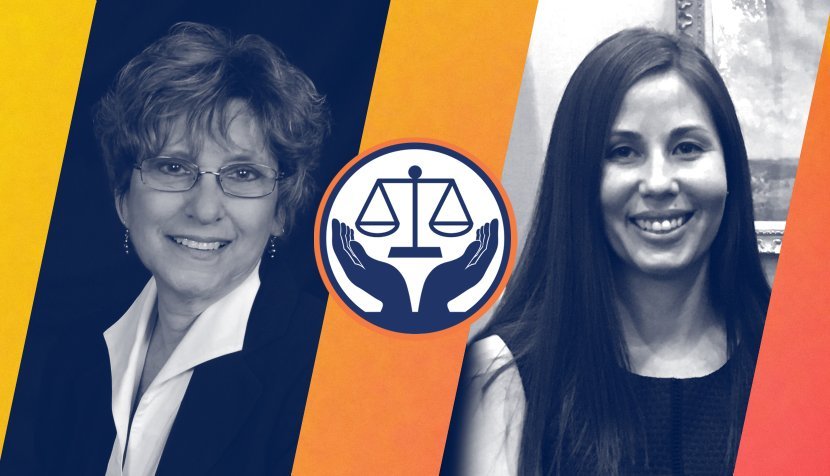Shaping Justice Conference '23
Andrew Allard '25
Staff Editor
The Law School hosted the 7th Annual Shaping Justice Conference last Friday, February 3, in person for the first time since 2021. Spurred in part by the Dobbs decision overturning Roe v. Wade last June, the theme of this year’s conference was styled “Safeguarding Bodily Autonomy: Examining the Intersections of Health and Justice.” Panel topics ranged from reproductive justice and data privacy issues in the wake of Dobbs to the impact of climate change on indigenous health outcomes. But one panel spoke on an issue of some controversy in recent years, both here in Virginia and nationally: access to gender-affirming care.
The panel, titled “Youth Health Access: Gender-Affirming Care and Reproductive Justice,” was moderated by Professor Andrew Block, with Professor Naomi Cahn, Judge Marilyn Goss of the Richmond Juvenile and Domestic Relations District Court, and Mary Sullivan, an advocate for gender-expansive children, teens, and young adults.
On the legal front, anti-trans legislation meets shifting privacy rights to create looming challenges for access to gender-affirming care. Professor Block explained that when it comes to the rights of minors, “A lot of what the law is about is thinking about who gets to make what decision. When does the state get to decide, when do parents get to decide, and when do children get to decide for themselves?” Framed this way, state bans on gender-affirming care for minors amount to a restriction on parental rights. “There’s some irony in who’s proposing these laws and who typically wants to protect the rights of parents,” said Professor Block. While some courts have held that restrictions on gender-affirming care violate parents’ long-recognized substantive due process right to make decisions about how to raise their children, Professor Block noted that the strength of rights based upon substantive due process is uncertain in the wake of Dobbs.
Unsurprisingly, providers of gender-affirming care have expressed concern over these restrictions. “I don’t think we can overstate how damaging the rhetoric and the talk of bills that are being proposed are in terms of fomenting fear,” said Mary Sullivan. Sullivan noted that while minors in Virginia can access a variety of reproductive healthcare services without the consent of their parents, hormone therapy treatments still require parental consent. Asked whether these lines make sense, Sullivan answered that it depends on the young person, noting that age is a blunt instrument for assessing development.
Sullivan also expressed disappointment that when it comes to anti-trans legislation, “People in positions of power M.S.U.—make shit up.” Sullivan suggested that legislation targeting trans youth is motivated by hostility towards LGBTQ+ people generally, which gives its proponents a claim that they are protecting moral values. Sullivan noted Alabama Governor Kay Ivey’s statement upon signing anti-trans legislation that “if the Good Lord made you a boy, you are a boy, and if he made you a girl, you are a girl.”[1]
But Sullivan says that, in her experience, gender-affirming care is lifesaving. Sullivan noted the significant improvement of mental health outcomes in the over 700 young people with gender dysphoria that she has worked with. “I’ve seen kids who I didn’t think were going to survive who are now thriving through graduate school, who are going to change the world. Even if you didn’t think this was a right, to me, it’s an investment in the future.” Sullivan also noted that, of the nine people she has worked with who have chosen to stop hormone therapy, none of them regretted initiating the treatment or felt that they had made the wrong decision.
Many at the Law School are no doubt already familiar with the slew of anti-transgender state legislation that has been introduced in recent years. In late January, Utah became the fifth state to ban gender-affirming care for minors.[2] And just last week, the Virginia House Education Committee voted to advance two anti-trans bills—one that requires public school employees to inform parents if they believe a student is transgender, and another that bans transgender athletes from playing for the school team corresponding with their gender identity.[3] Six other anti-trans bills were rejected by the Senate Education Committee.[4]Members of the UVA Lambda Law Alliance attended a Monday morning legislative hearing in Richmond to express their opposition to the bills.
Indeed, speakers at the conference’s introductory panel noted the uncomfortable relationship between activism-oriented members of the University community and the current Virginia government. Speaking on the University’s efforts to remedy racial injustices, Melissa Gomes, Associate Dean for Diversity, Equity and Inclusion at the UVA School of Nursing, said that University administration remains committed to its work. “We know what they’re talking about up in the Capitol. And we know that maybe not everyone is supporting this work, but we’re still here to support the work and we’re not going to get rid of it.”
---
tya2us@virginia.edu
[1]https://www.nbcnews.com/nbc-out/out-politics-and-policy/alabama-governor-signs-bill-criminalizing-transgender-health-care-mino-rcna23674.
[2]https://www.pbs.org/newshour/nation/how-utahs-new-ban-on-gender-affirming-care-for-minors-is-affecting-trans-teens-in-the-state.
[3] https://lis.virginia.gov/cgi-bin/legp604.exe?231+sum+HB2432; https://lis.virginia.gov/cgi-bin/legp604.exe?231+sum+HB1387.
[4]https://www.washingtonblade.com/2023/02/02/va-senate-committee-kills-six-anti-transgender-bills/

